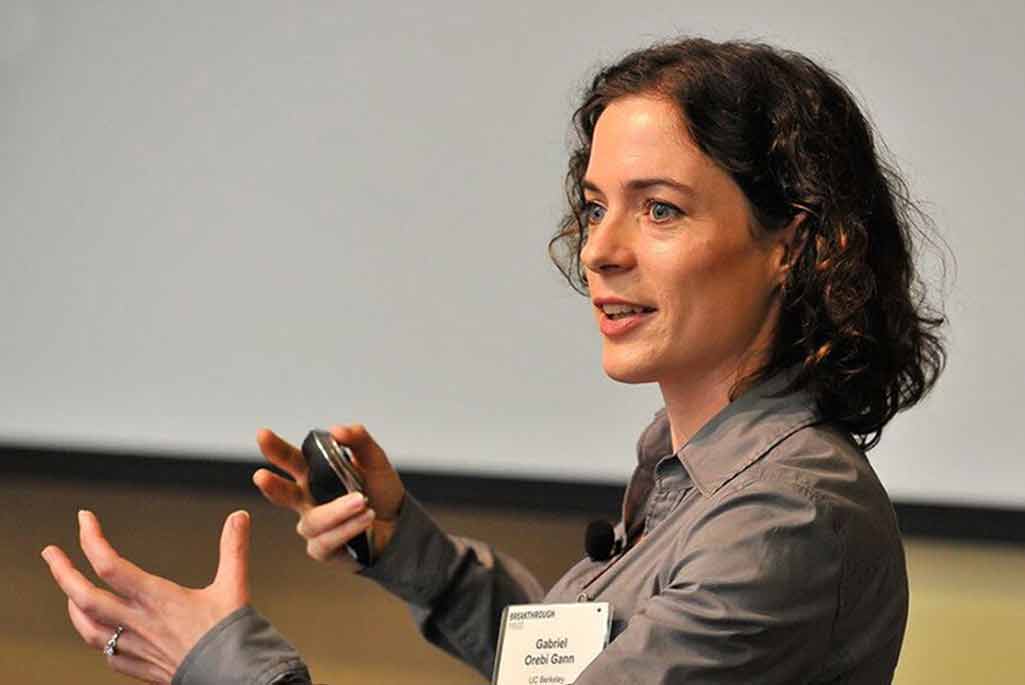Gabriel Orebi Gann, a faculty scientist in Berkeley Lab’s Nuclear Science Division and lead researcher in the Eos Collaboration, has received the 2024 Instrumentation Early Career Award from the International Committee for Future Accelerators (ICFA).
Orebi Gann received the award “for pioneering and developing an innovative detector technique to achieve a clear separation between scintillation and Cherenkov photons, which has the potential to significantly influence the design of future neutrino experiments,” and she leads a global community of scientists who are developing this technology for both fundamental science and nonproliferation applications. The 20-ton Eos detector, currently operating at UC Berkeley, integrates novel liquid scintillators, fast photon detectors, quantum chromatic sorting, custom readout, and machine learning offline analysis techniques. With Eos, the team hopes to demonstrate the impact of this novel technology on the precision reconstruction of low-energy particle interactions and particle identification capabilities. One possible application of this technology would be to deploy a larger iteration of the Eos detector – known as Theia – as part of the Deep Underground Neutrino Experiment (DUNE) in South Dakota. Theia would offer a complementary target for DUNE’s primary goal of probing CP violation in the high-energy neutrino beam from Fermilab, and offer a rich program of low-energy detection beyond what is currently planned for deployment as part of DUNE Phase I.
As an experimental nuclear and particle physicist, Orebi Gann’s main research interests lie in low-energy neutrino physics, exploring the fundamental nature of the neutrino to understand how our Universe evolved and the predominance of matter over antimatter. The weak nature of neutrino interactions gives researchers a unique glimpse into otherwise unreachable regions such as the core of our Sun, beneath the surface of the Earth, and far-distant supernovae. She and her team have already deployed several detectors, including the CHESS (Cherenkov Scintillation Separation) experiment at UC Berkeley, and Orebi Gann has had leadership roles in a broad range of low-energy physics experiments, including the Nobel-winning Sudbury Neutrino Observatory (SNO), which first observed flavor change in the flux of neutrinos coming from the Sun. More recently, Orebi Gann is involved in the SNO+ experiment, which seeks to observe the neutrinoless double beta decay process, demonstrating that neutrinos are their own antiparticle.
Orebi Gann received the award during the 2024 Pisa Meeting on Advanced Detectors in La Biodola, Isola d’Elba, Italy. Awardees are selected annually by the ICFA Instrumentation Innovation and Development Panel, which engages a global community of physicists in the development of new instrumentation for experiments at future accelerators and to promote research on instrumentation for use in future particle physics experiments.
